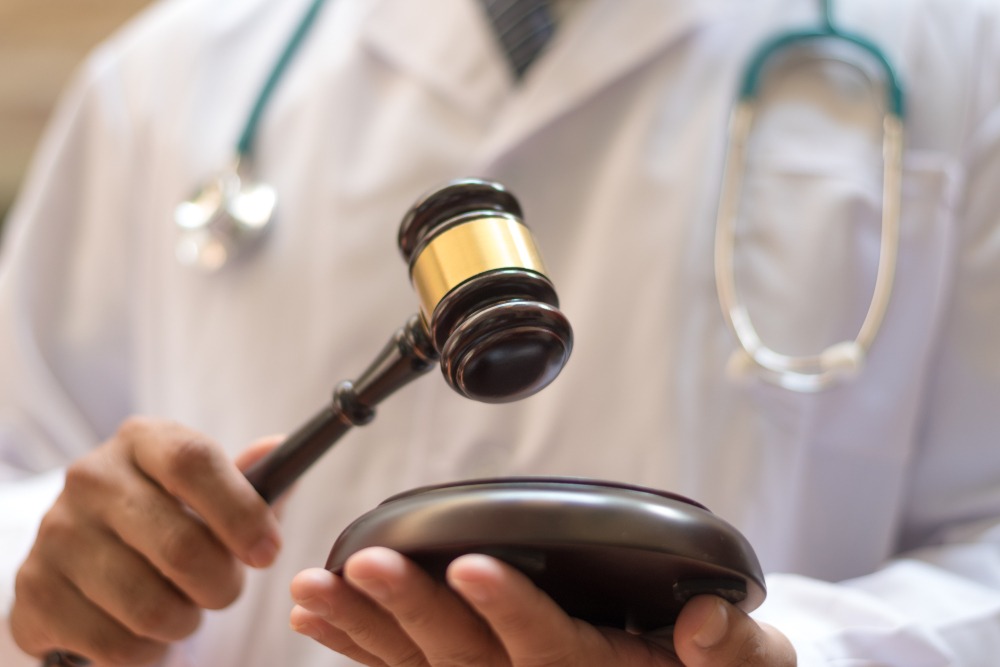Medical malpractice claims can be complex and challenging to prove. Unlike other types of injury cases, these claims require plaintiffs to establish that a healthcare provider’s negligence directly resulted in harm. To do this, expert testimony is crucial. An expert witness can help the court understand technical medical details, establish a standard of care, and illustrate how the defendant’s actions deviated from this standard. In many cases, expert testimony can be the deciding factor in a medical malpractice case, offering clarity and objectivity on intricate medical issues.
This article explores the importance of expert testimony in medical malpractice claims, examining how these professionals contribute to proving negligence and providing insights that lay the foundation for a strong case.
What Are Medical Malpractice Claims
Medical malpractice claims arise when a healthcare provider, such as a doctor, nurse, or medical institution, fails to provide care that meets accepted medical standards, leading to harm for the patient. These claims are unique because they require the plaintiff to demonstrate that the healthcare provider’s actions were negligent and that this negligence directly caused their injuries.
To succeed in these claims, plaintiffs must establish four key elements: a duty of care, a breach of that duty, causation, and damages. However, proving that the defendant breached their duty of care often requires a thorough understanding of medical practices and standards. Expert testimony is essential in addressing this need, bridging the knowledge gap between general understanding and complex medical issues.
Importance of Expert Testimony
Expert testimony is a cornerstone of medical malpractice claims, as it provides critical information that helps the court or jury understand the technical aspects of the case. Here’s why expert testimony is so valuable in these claims:
Establishing the Standard of Care
The standard of care refers to the level of care that a reasonably competent healthcare provider would have provided under similar circumstances. Determining this standard is a crucial first step in a medical malpractice case, as it sets the benchmark against which the defendant’s actions will be measured. Expert witnesses are qualified professionals who can describe this standard to the court, explaining what a typical doctor, surgeon, or specialist would have done in a similar situation.
For instance, in a surgery-related malpractice claim, a surgeon with expertise in that specific field might testify about the steps and precautions that should have been taken. By establishing the standard of care, the expert witness enables the court to compare the defendant’s actions against a reliable benchmark.
Demonstrating a Breach of Duty
Once the standard of care is established, the next step in medical malpractice claims is proving that the healthcare provider’s actions deviated from this standard. Expert witnesses analyze the specifics of the case, using their medical knowledge to point out where the defendant failed to meet the expected level of care. They may review medical records, procedures, and outcomes, providing a professional opinion on whether the actions in question were substandard.
Without expert testimony, it would be challenging for plaintiffs to demonstrate that the healthcare provider acted negligently, especially if the issues involve specialized medical knowledge. An expert witness clarifies these points, helping the court understand how the provider’s actions (or inactions) failed to meet the standard of care.
Proving Causation
In medical malpractice claims, proving causation is essential yet often difficult, as plaintiffs must show that the defendant’s negligence directly caused their injury. Medical issues are complex, and sometimes, an injury or adverse outcome could be the result of underlying health conditions rather than the healthcare provider’s actions. Expert testimony helps address this complexity.
An expert witness can use their knowledge to draw a connection between the defendant’s negligence and the harm suffered by the patient. For example, in cases where a delay in diagnosis led to worsened outcomes, an expert witness might explain how prompt treatment could have altered the patient’s prognosis. This testimony is instrumental in showing that the defendant’s breach of duty was the proximate cause of the injury.
Qualifying as an Expert Witness
Not every healthcare professional qualifies as an expert witness in medical malpractice cases. Courts often require that expert witnesses meet specific qualifications, which vary depending on the complexity of the case and the court’s standards. Generally, an expert witness must have relevant medical experience, knowledge, and credentials in the field related to the claim.
For example, if the malpractice claim involves a surgical error, the court would typically require an expert witness with expertise in surgery. This qualification ensures that the testimony is credible and relevant. In some jurisdictions, expert witnesses may also need certification or experience within the last few years to confirm their knowledge is up-to-date.
Challenges with Expert Testimony
While expert testimony is invaluable, it also presents challenges in medical malpractice claims. One challenge is the cost; hiring expert witnesses can be expensive due to the high level of expertise required. Plaintiffs often bear these costs, which can increase the financial burden of pursuing a claim.
Another challenge is the potential for conflicting expert opinions. It’s not uncommon for defendants to bring in their own expert witnesses who argue that the provider’s actions were reasonable. In such cases, the court or jury must weigh each expert’s testimony, determining which one is more credible. This can be particularly complex, as medical issues often have multiple valid interpretations, making it difficult to reach a consensus.
Furthermore, the process of understanding and evaluating expert testimony can be challenging for juries and judges who lack medical backgrounds. Simplifying complex medical terms and concepts without losing accuracy is essential for expert witnesses. Some plaintiffs’ lawyers work alongside experts who are skilled at explaining complex issues in layman’s terms, helping the court grasp the details of the case.
Expert Testimony and Other Legal Support
Expert testimony is a vital component, but it’s only one part of a successful medical malpractice claim. Working with knowledgeable attorneys who understand the nuances of these cases is essential. Specialized legal teams can identify reputable expert witnesses, prepare them for trial, and guide plaintiffs through the complex legal requirements of medical malpractice claims.
For example, if a case intersects with workplace issues, consulting with employment law attorneys in Los Angeles or similar professionals can be beneficial. They may provide additional insights if employment-related factors contribute to the claim, such as issues related to workplace safety, protocols, or institutional responsibilities.
Expert Testimony and Holistic Healing Perspectives
The emotional toll of medical malpractice claims can be profound. Many plaintiffs find it helpful to explore holistic approaches to managing the stress and emotional burden of the case. Practices such as Reiki Healing Online can offer support, helping individuals find peace and mental clarity during a difficult period. Holistic healing approaches focus on restoring balance, which may be beneficial for individuals dealing with the aftermath of medical negligence and the emotional impact of the legal process.
Conclusion
In medical malpractice claims, expert testimony is a powerful tool for establishing key elements such as the standard of care, breach of duty, and causation. Expert witnesses provide essential insights that clarify complex medical issues, making it possible for courts to reach fair judgments based on professional assessments. While these cases can be challenging, expert testimony plays a pivotal role in guiding plaintiffs through the legal process, strengthening the case, and enhancing the chances of a successful outcome.
Whether working to prove causation or providing context for a breach of duty, expert witnesses are crucial in presenting a compelling case in medical malpractice claims. With skilled legal guidance and credible expert witnesses, plaintiffs can navigate the complexities of these claims and pursue the justice they deserve.




